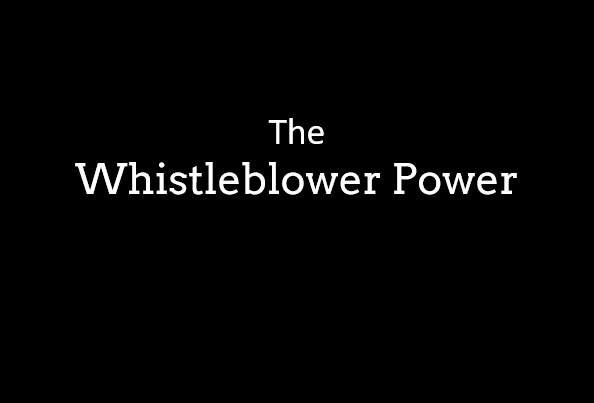Whistleblowers play a vital role in the fabric of modern society by exposing wrongdoing, promoting transparency, and holding individuals and organizations accountable. Their motivation to expose wrongdoing is a bulwark against corruption, corporate misconduct, government malfeasance, and a range of other unethical practices. This short essay explores whistleblowers’ significance and impact on society, emphasizing the benefits they bring and the challenges they face.
Promoting Transparency and Accountability
Whistleblowers act as catalysts for transparency and accountability, shedding light on hidden information that would otherwise remain concealed. They uncover fraudulent activities, illegal practices, and power abuse, helping restore integrity and public trust. By bringing such misconduct to public attention, whistleblowers expose the inner workings of organizations, government agencies, and institutions, allowing citizens to make informed decisions.
Protecting the Public Interest
Whistleblowers often emerge from industries or organizations that directly impact public safety, health, or the environment. Their revelations can prevent harm and save lives. Whether it is a pharmaceutical company hiding the dangerous side effects of a drug, an automaker manipulating emissions tests, or a government agency neglecting public health concerns, whistleblowers act as guardians of the public interest. Their disclosures compel reforms, ensuring that the well-being of citizens takes precedence over corporate or governmental interests.
Fighting Corruption and Fraud
Corruption and fraud pose significant threats to nations’ social and economic well-being. Whistleblowers play a pivotal role in uncovering and combating these vices. They expose bribery, embezzlement, money laundering, and other illicit activities, helping dismantle corruption networks. Whistleblower disclosures have led to the recovery of billions of dollars in fraud cases, protecting taxpayers’ money and ensuring justice is served.
Enabling Ethical Decision-Making
Whistleblowers serve as beacons of ethical behavior, encouraging others to uphold moral standards. Standing up against wrongdoing inspires colleagues and the wider society to question unethical practices and make responsible choices. Whistleblowers foster a culture that values integrity, transparency, and fairness, shaping organizational and societal norms.
Strengthening Democracy and Good Governance
In democratic societies, whistleblowers play a critical role in upholding the principles of accountability and good governance. They expose government abuses, political corruption, and violations of civil liberties. Whistleblower revelations can trigger public debate, media scrutiny, and legal action, prompting systemic reforms. By challenging the misuse of power, whistleblowers contribute to maintaining and enhancing democratic institutions.
Challenges Faced by Whistleblowers
Despite their noble intentions, whistleblowers often face significant challenges and risks. They risk retaliation, including job loss, harassment, and reputational damage. Whistleblowers may encounter legal obstacles and lack adequate protection, leaving them vulnerable to legal action or personal attacks. The fear of isolation and social stigma can discourage potential whistleblowers from coming forward. Addressing these challenges requires comprehensive legal protections, support networks, and cultural shifts that value and honor whistleblowers’ contributions.
The Importance of Whistleblower Protection
Recognizing the indispensable role whistleblowers play, many countries have introduced legislation to protect them. Whistleblower protection laws shield individuals from retaliation, provide avenues for reporting wrongdoing, and ensure anonymity where necessary. These laws encourage a safe and supportive environment for whistleblowers, encouraging truth-telling and accountability. Moreover, organizations should foster a culture that encourages internal reporting and safeguards whistleblowers from reprisals.
Conclusion
Whistleblowers are unsung heroes of modern society, bravely exposing corruption, unethical practices, and risks to public safety. Their disclosures have far-reaching impacts, promoting transparency, accountability, and good governance.
